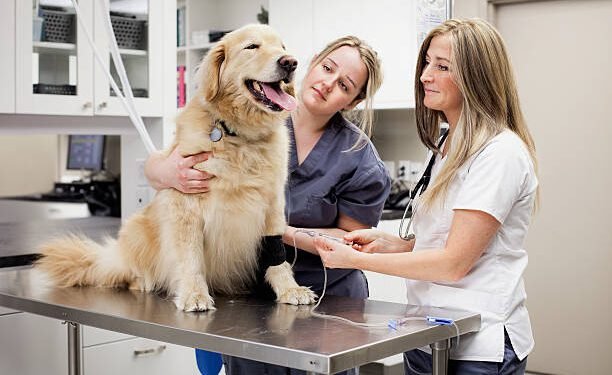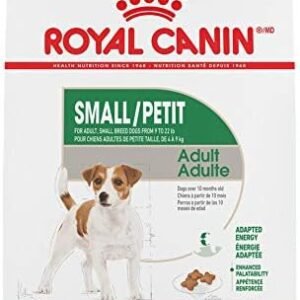I. Introduction
In the realm of canine healthcare, one pharmaceutical agent stands out for its versatile applications and potential to bring relief to our four-legged companions—Prednisolone. This medication, known by various common names, plays a vital role in the treatment and management of numerous canine health issues.
As responsible dog owners and caregivers, it’s paramount to understand the medications that may be prescribed for our pets. Prednisolone is a medication that often raises questions among dog owners, from its applications to proper administration and potential side effects. This comprehensive guide aims to provide accurate and detailed information about Prednisolone for dog owners, helping them make informed decisions about their pet’s health.

Essential Drug Information
To kickstart our exploration of Prednisolone’s role in canine healthcare, let’s first lay the foundation with a concise table summarizing essential drug information for veterinary use. This will ensure that veterinarians and pet owners seeking information about this medication can easily access the key details they need.
Table: Essential Information about Prednisolone for Dogs
| Common Names | Prednisolone |
|---|---|
| Drug Type | Corticosteroid |
| Used For | Inflammation, Allergies, Immune Disorders, and more |
| Administered | Tablets, Oral Liquid, Injectable |
| FDA Approved | Yes |
It’s vital to note that Prednisolone falls under the category of corticosteroids, which are potent anti-inflammatory and immunosuppressive agents. While these medications can be incredibly effective, their use must be guided by veterinary expertise toensure the best outcomes for your canine companion.
Table of Contents
The Importance of Consulting a Veterinarian
Before delving into the benefits, dosage, side effects, and more, it’s crucial to emphasize that the administration of any medication to dogs should be under the guidance of a qualified veterinarian. Your veterinarian possesses the expertise to determine if Prednisolone is appropriate for your dog’s specific condition and can provide precise instructions regarding dosage and administration.
Every dog is unique, and their medical needs may vary. This is why professional advice is irreplaceable. Your vet will perform a thorough evaluation and consider your dog’s overall health, age, and any pre-existing conditions before recommending Prednisolone or any other medication.
The Purpose of the Article
The purpose of this article is to serve as a valuable resource for dog owners, offering comprehensive insights into the world of Prednisolone. By the end of this guide, readers will have a solid understanding of how Prednisolone works, its benefits, dosage guidelines, potential side effects, and precautions. We’ll also discuss the importance of consulting a veterinarian and provide essential information about Prednisolone’s alternatives.
Our goal is to empower dog owners with knowledge, enabling them to engage in informed discussions with their veterinarians and make the best choices for their beloved pets. Whether your dog is dealing with an allergic reaction, an autoimmune disorder, or inflammation, Prednisolone could be the key to a healthier and happier life. With the right information, you can ensure that your furry friend receives the care and attention they deserve.
Now, let’s explore the world of Prednisolone for dogs, starting with a comprehensive understanding of this medication.
Absolutely, here’s the “Understanding Prednisolone” section for your article on “Prednisolone for Dogs: Benefits, Dosage, Side Effects, and More”:
II. Understanding Prednisolone
Prednisolone is a well-known and widely used medication in the realm of veterinary medicine. But what exactly is Prednisolone, and how does it work in the bodies of our canine companions? This section aims to provide a clear and detailed understanding of this medication, its mechanisms, and the common conditions and ailments in dogs that it can effectively manage.
What is Prednisolone?
Prednisolone is a corticosteroid medication, belonging to the glucocorticoid class of steroids. It is a synthetic derivative of cortisol, a hormone naturally produced by the adrenal glands. Corticosteroids like Prednisolone mimic the action of cortisol in the body, primarily focusing on its anti-inflammatory and immunosuppressive effects.
In simple terms, Prednisolone helps control inflammation and regulate the immune response. This makes it a valuable tool in managing a wide range of health issues in dogs.
How Does Prednisolone Work in Dogs’ Bodies?
Prednisolone exerts its effects by interacting with specific receptors throughout the dog’s body. Once administered, it is rapidly absorbed and distributed systemically. Its primary mode of action includes:
1. Anti-Inflammatory Action: Prednisolone is highly effective at reducing inflammation in dogs. Inflammation is a natural response to injury or infection, but when it becomes excessive or chronic, it can cause significant discomfort and damage to tissues. Prednisolone works by suppressing the inflammatory response, reducing redness, swelling, and pain.
2. Immunosuppressive Action: Dogs, like humans, have complex immune systems that defend against infections and diseases. In certain cases, such as autoimmune disorders, the immune system can become overactive and attack healthy cells. Prednisolone helps dampen this response, making it invaluable in the management of immune-related conditions.
3. Analgesic Effect: Prednisolone can also offer pain relief. In cases where pain results from inflammation, its anti-inflammatory properties help alleviate discomfort. However, it’s important to note that Prednisolone is not a primary pain medication, and other analgesics may be used alongside it as needed.
Common Conditions and Ailments in Dogs that Prednisolone Can Treat or Manage
Prednisolone is a versatile medication with a wide range of applications in canine healthcare. It is often used to manage conditions such as:
1. Allergies: Prednisolone can provide relief from allergic reactions, including skin irritations, itching, and respiratory distress caused by allergens.
2. Autoimmune Disorders: Dogs with autoimmune diseases like lupus or autoimmune hemolytic anemia may benefit from Prednisolone’s immunosuppressive properties.
3. Inflammatory Bowel Disease (IBD): This condition is characterized by chronic inflammation of the gastrointestinal tract. Prednisolone can help reduce inflammation and control symptoms.
4. Arthritis: In dogs suffering from arthritis, Prednisolone can help alleviate joint pain and improve mobility by reducing inflammation.
5. Asthma: Canine asthma involves inflammation of the airways. Prednisolone can ease these symptoms and improve breathing.
6. Addison’s Disease: Prednisolone can be a part of the treatment for Addison’s disease, a condition where the adrenal glands do not produce sufficient hormones.
It’s important to highlight that while Prednisolone can be highly effective in managing these conditions, it is not without potential side effects, and its use should be closely monitored by a veterinarian. The correct dosage and duration of treatment are critical to balancing the medication’s benefits and risks.
Certainly, here’s the section about the benefits of Prednisolone for dogs:
III. Benefits of Prednisolone for Dogs
Prednisolone, a potent corticosteroid, offers a multitude of benefits when used in the treatment of various canine health issues. In this section, we will delve into the effectiveness of Prednisolone in addressing specific conditions and explore how it can significantly enhance the quality of life for our furry friends.
Effectiveness in Treating Specific Canine Health Issues
1. Allergies
Prednisolone is a valuable tool in managing allergic reactions in dogs. Allergies can manifest as skin irritations, itching, hives, or even more severe respiratory distress. Prednisolone’s anti-inflammatory properties help to alleviate these symptoms and provide much-needed relief for allergic canines.
2. Autoimmune Disorders
Dogs suffering from autoimmune disorders, where their immune system mistakenly attacks healthy cells and tissues, can benefit from Prednisolone’s immunosuppressive effects. It helps regulate the immune response, reducing inflammation and preventing further damage to the body.
3. Inflammatory Bowel Disease (IBD)
Inflammatory Bowel Disease is a challenging condition characterized by chronic inflammation of the gastrointestinal tract. Prednisolone plays a crucial role in managing this disease by reducing inflammation and controlling symptoms like diarrhea and vomiting.
4. Arthritis
Arthritis is a common condition in older dogs, causing joint pain and stiffness. Prednisolone’s anti-inflammatory properties help alleviate pain, reduce swelling in the joints, and improve mobility, ultimately enhancing the quality of life for dogs with arthritis.
5. Asthma
Canine asthma involves inflammation and constriction of the airways, leading to labored breathing. Prednisolone can provide relief from these symptoms, making it easier for dogs to breathe and engage in their regular activities.
6. Addison’s Disease
Addison’s disease, or hypoadrenocorticism, occurs when the adrenal glands do not produce enough hormones. Prednisolone is often included in the treatment regimen for this condition to help replace some of the deficient hormones, improving the dog’s overall health.
How Prednisolone Can Improve Dogs’ Quality of Life
The benefits of Prednisolone go beyond the specific conditions it treats. By effectively managing these health issues, Prednisolone can greatly enhance a dog’s quality of life in several ways:
1. Pain Relief
In conditions like arthritis or autoimmune diseases, pain and discomfort are common. Prednisolone’s anti-inflammatory properties help reduce pain and inflammation, allowing dogs to move more comfortably and enjoy daily activities without constant discomfort.
2. Improved Breathing
For dogs with respiratory issues such as asthma, Prednisolone can make a significant difference in their ability to breathe. This improvement in respiratory function can lead to increased energy levels and a happier, more active lifestyle.
3. Enhanced Appetite and Digestion
Inflammatory conditions can lead to decreased appetite and gastrointestinal upset. Prednisolone’s ability to reduce inflammation in the digestive tract can lead to improved appetite, better digestion, and weight gain in dogs with these issues.
4. Reduced Allergic Reactions
Allergic reactions can be incredibly uncomfortable for dogs, leading to incessant scratching, rashes, and discomfort. Prednisolone’s anti-inflammatory effect alleviates these symptoms, providing relief and preventing skin damage from excessive scratching.
5. Management of Chronic Diseases
For dogs with chronic conditions like IBD, Prednisolone helps manage their symptoms, allowing for a better quality of life. It reduces flare-ups and discomfort, enabling affected dogs to enjoy life more fully.
It’s important to note that while Prednisolone offers numerous benefits, its use should always be guided by a veterinarian. The dosage, treatment duration, and monitoring are critical to ensure that dogs receive the maximum benefits of Prednisolone while minimizing potential side effects.
Certainly, here’s the section about administering Prednisolone to dogs:
IV. Administering Prednisolone to Dogs
Administering Prednisolone to dogs involves careful consideration of the right dosage, frequency, and the method used for giving the medication. This section will provide essential guidelines on how to ensure your dog receives Prednisolone safely and effectively.
Dosage Guidelines
Determining the correct dosage of Prednisolone for your dog is a critical step that should always be directed by your veterinarian. The dosage can vary significantly depending on the dog’s size, the condition being treated, and other individual factors. Here are some general guidelines:
Body Weight: Prednisolone is often prescribed in terms of milligrams per kilogram (mg/kg) of the dog’s body weight. A common starting dosage is 0.5 mg to 2 mg per kg of body weight.
Condition Severity: The severity of the condition being treated plays a role in dosage. Dogs with severe inflammation may require a higher initial dosage, which is then gradually reduced once the condition is under control.
Age and Health: The age and overall health of your dog can influence the dosage. Older dogs or those with underlying health issues may require lower doses to avoid potential side effects.
Always adhere to the specific dosage instructions provided by your veterinarian, as they will consider your dog’s unique circumstances.
Frequency of Administration
Prednisolone is typically administered once daily, either in the morning or as directed by your veterinarian. In some cases, particularly when the daily dose is substantial, your vet may recommend splitting the daily dose into two administrations to reduce the risk of side effects. It’s essential to follow your vet’s guidance regarding the frequency.
Directions for Use
Administering Prednisolone can be challenging, especially for dogs that are picky eaters or highly sensitive to medication. Here are some helpful tips for ensuring your dog takes Prednisolone without issues:
Hiding in Treats: Prednisolone tablets can often be hidden in treats. Ensure your dog consumes the treat completely to receive the full dose. Be sure to check with your vet that this method is suitable for your dog’s specific prescription.
Mixing with Food: Some dogs will accept their medication when it’s mixed with a small amount of wet food. Ensure they eat the entire portion, so they receive the full dosage.
Crushing Tablets: In some cases, it may be appropriate to crush the Prednisolone tablet and mix it with a small amount of food. Consult your vet before crushing tablets, as certain formulations should not be crushed.
Pill Pockets: Commercially available pill pockets are designed to hold medication. They can be particularly helpful if your dog is resistant to taking pills.
Liquid Formulation: Prednisolone is also available in liquid form, which can be easier to administer directly into the dog’s mouth using a syringe or mixed with a small amount of food.
Remember to discuss the method you choose with your veterinarian to ensure it’s suitable for your dog and won’t affect the medication’s efficacy.
Importance of Adhering to Prescribed Dosages
Adhering to the prescribed dosage of Prednisolone is crucial for your dog’s health. Deviating from the recommended dosage can lead to inadequate treatment or an increased risk of side effects. It’s essential to complete the full course of medication as directed by your veterinarian, even if your dog’s symptoms improve. Discontinuing Prednisolone abruptly can lead to a relapse of the condition.
Missed Dose Guideline
If you accidentally miss a dose of Prednisolone, it’s essential to follow these guidelines:
If you realize you missed a dose shortly after the scheduled time, administer the dose as soon as you remember. Then, continue with the regular dosing schedule.
If it’s closer to the time for the next scheduled dose, skip the missed one and continue with the regular schedule. Don’t double the dose to make up for the missed one.
If you’re unsure about what to do, contact your veterinarian for guidance.
Consistency in administering Prednisolone is key to its effectiveness. If you find it challenging to keep track of the dosing schedule, consider setting up reminders or using a pill organizer. Always consult your veterinarian with any concerns or questions regarding your dog’s medication regimen.
Absolutely, here’s the section about the potential side effects and precautions when using Prednisolone for dogs:
V. Potential Side Effects and Precautions
When administering Prednisolone to dogs, it’s essential to be aware of potential side effects and take necessary precautions to ensure your pet’s well-being. This section will provide insights into the common side effects, how to identify severe or adverse reactions, precautions for pregnant or lactating dogs, and the interactions with other medications or supplements.
Common Side Effects of Prednisolone in Dogs
Prednisolone is generally well-tolerated by dogs when prescribed and used correctly. However, it’s essential to be aware of potential side effects. Common side effects may include:
Increased Thirst and Urination: Prednisolone can lead to an increase in thirst and more frequent urination in dogs.
Increased Appetite: Some dogs may experience an increased appetite when on Prednisolone. This can lead to weight gain if not managed.
Panting: Excessive panting can occur as a side effect, especially in high doses.
Altered Behavior: Prednisolone may cause changes in behavior, including restlessness or agitation.
Gastrointestinal Upset: Some dogs may experience gastrointestinal issues such as vomiting or diarrhea.
Weakened Immune System: Prednisolone suppresses the immune system, which can make dogs more susceptible to infections.
- Hair Loss: Prolonged use of Prednisolone may lead to hair loss in some dogs.
It’s crucial to monitor your dog for these side effects and report any significant or persistent changes to your veterinarian.
Identifying Severe or Adverse Reactions
While most dogs tolerate Prednisolone well, some may experience severe or adverse reactions. It’s vital to recognize signs of a severe reaction and seek immediate veterinary assistance if they occur. Severe reactions may include:
Allergic Reactions: Signs of an allergic reaction can include hives, difficulty breathing, facial swelling, or severe itching. These require immediate medical attention.
Gastrointestinal Bleeding: Vomiting blood, black or tarry stools, or abdominal pain should be reported to your veterinarian promptly.
Weakness or Lethargy: Severe weakness, collapse, or extreme lethargy are concerning symptoms.
Excessive Thirst and Urination: While mild increases in thirst and urination are common, extreme or sudden changes may be problematic.
Neurological Symptoms: Seizures, disorientation, or other neurological signs are serious and should be addressed urgently.
Ulcers: Symptoms such as severe vomiting or blood in vomit, as well as abdominal pain, could indicate ulcers.
Precautions for Pregnant or Lactating Dogs
Pregnant and lactating dogs require special considerations when it comes to using Prednisolone. The medication can pass to puppies through the placenta or milk, potentially affecting their growth and development. Here are some precautions to take:
Consult Your Veterinarian: Always consult your veterinarian if you suspect that your dog is pregnant or lactating before administering Prednisolone. They will help you weigh the potential benefits and risks and may consider alternative treatments.
Reduced Dosage: In some cases, your vet may prescribe a lower dosage of Prednisolone if it’s deemed necessary. This helps minimize exposure to the developing puppies.
Monitoring: Close monitoring of the pregnant or lactating dog’s health and the health of her puppies is essential. Ensure you follow your vet’s guidance throughout the pregnancy and nursing period.
Interactions with Other Medications or Supplements
Prednisolone can interact with other medications or supplements, potentially affecting their efficacy or causing adverse reactions. Always inform your veterinarian about any other medications or supplements your dog is taking. Some common interactions include:
Non-Steroidal Anti-Inflammatory Drugs (NSAIDs): Combining Prednisolone with NSAIDs can increase the risk of gastrointestinal bleeding and ulcers.
Vaccinations: Prednisolone may reduce the effectiveness of some vaccines. Consult your vet regarding the timing of vaccinations.
Other Immunosuppressive Drugs: Combining Prednisolone with other immunosuppressive medications can further weaken the immune system, increasing the risk of infections.
Diuretics: Prednisolone may enhance the effect of diuretics, potentially leading to electrolyte imbalances.
Antacids: Some antacids can reduce the absorption of Prednisolone, so it’s essential to follow your vet’s guidance regarding their use.
Always communicate openly with your veterinarian regarding your dog’s complete medical history, including any ongoing treatments, to ensure safe and effective use of Prednisolone.
Certainly, here’s the section discussing the importance of consulting a veterinarian when using Prednisolone for dogs:
VI. Consultation with a Veterinarian
When it comes to your dog’s health, consulting a veterinarian is paramount. Prednisolone, like any medication, should be administered with professional guidance. This section emphasizes the importance of involving your veterinarian, provides information on potential overdose and toxicity, guidance on when to call the vet, and how to discuss Prednisolone with your veterinarian, including seeking a second opinion if needed.
Emphasizing the Importance of Professional Guidance
Before embarking on any treatment plan involving Prednisolone or any medication, it is crucial to consult a veterinarian. These highly trained professionals can assess your dog’s condition, provide an accurate diagnosis, and recommend the most appropriate treatment. Here’s why professional guidance is essential:
Accurate Diagnosis: Veterinarians can determine the underlying cause of your dog’s condition, ensuring that Prednisolone is the right treatment choice.
Customized Treatment Plans: They can create personalized treatment plans based on your dog’s specific needs, including the right dosage, duration, and any potential alternatives.
Monitoring and Adjustments: Veterinarians can closely monitor your dog’s response to Prednisolone and make necessary adjustments to the treatment to ensure its effectiveness.
Minimizing Risks: Professionals can help mitigate risks associated with side effects, interactions, and long-term use.
Legal Prescription: Prednisolone is a prescription medication, and obtaining it without a veterinarian’s prescription is illegal and potentially dangerous. Always follow the proper legal channels.
Overdose Information and Possible Toxicity/Effect
While Prednisolone is safe when administered as prescribed by a veterinarian, accidental overdoses can occur. It’s crucial to understand the potential signs of overdose and the toxicity effects. Some signs of Prednisolone overdose include:
Excessive Thirst and Urination: If your dog starts drinking excessively and urinating more frequently, it could indicate an overdose.
Increased Appetite: An overdose may lead to extreme hunger and overeating.
Panting and Restlessness: Restlessness, panting, and anxiety can be signs of overdose.
Gastrointestinal Upset: Vomiting, diarrhea, and stomach discomfort may occur.
Muscle Weakness: Overdose can lead to muscle weakness, lethargy, and a lack of coordination.
Cushing’s Syndrome: In prolonged overdose cases, dogs may develop Cushing’s syndrome with symptoms like hair loss, skin thinning, and a pot-bellied appearance.
If you suspect an overdose, contact your veterinarian immediately. They can advise on the best course of action, which may include adjusting the treatment plan, discontinuing Prednisolone temporarily, or offering other interventions.
Signs or Symptoms: When to Call the Vet
While Prednisolone can be highly effective, it’s essential to monitor your dog for any unusual signs or symptoms. Contact your veterinarian if you notice any of the following:
Severe Side Effects: If your dog experiences severe side effects, such as difficulty breathing, sudden weakness, or severe vomiting, seek veterinary care promptly.
Behavioral Changes: If your dog’s behavior drastically changes, becoming lethargic, aggressive, or disoriented, consult your vet.
Failure to Improve: If your dog’s condition fails to improve or worsens after a period of treatment, it’s vital to inform your veterinarian. They may need to adjust the treatment plan or explore alternative options
Signs of Infection: Prednisolone can suppress the immune system. Therefore, if your dog exhibits signs of infection, such as fever, pus, or excessive inflammation, contact your vet.
Long-Term Use: If Prednisolone is prescribed for a prolonged period, regular check-ups are essential. These can help detect and manage any potential complications or side effects.
How to Discuss Prednisolone with Your Veterinarian
Open communication with your veterinarian is vital when it comes to your dog’s treatment with Prednisolone. Here’s how to discuss Prednisolone with your veterinarian effectively:
Provide Detailed Information: When discussing your dog’s condition, be thorough. Include when symptoms started, their severity, and any previous treatments or medications
Ask Questions: Don’t hesitate to ask your veterinarian questions. Seek clarification on the treatment plan, potential side effects, and any concerns you may have.
Follow Instructions: Ensure you understand the prescribed dosage, frequency, and any specific administration guidelines. If you’re unsure about any aspect of the treatment, seek clarification.
Voice Concerns: If you have concerns about Prednisolone, such as its potential side effects, your vet can offer insights and address your worries.
Seek a Second Opinion: If you have doubts about the diagnosis or treatment plan, you have the right to seek a second opinion from another qualified veterinarian. It’s essential to make informed decisions about your dog’s healthcare.
Your veterinarian is your partner in your dog’s healthcare journey. By maintaining an open and respectful dialogue, you can ensure the best possible care for your furry companion.
Certainly, here’s a section comparing Prednisolone with similar drugs used in veterinary care:
VII. Comparison with Similar Drugs in this Category
When it comes to managing various canine health issues, Prednisolone is just one option among several medications in its category. This section aims to provide a comparative analysis of Prednisolone with other drugs, comparing their efficacy, discussing which alternatives are chosen in different scenarios, and addressing cost considerations.
Comparing Efficacy of Drugs
Prednisone vs. Prednisolone: Prednisone and Prednisolone are both corticosteroids used in veterinary medicine. Prednisolone is considered more potent because it directly converts to an active form in the body. It is often preferred when rapid relief from inflammation is needed.
Dexamethasone: Dexamethasone is another corticosteroid that can be used in dogs. It is known for its longer duration of action compared to Prednisolone. However, Prednisolone is generally preferred for chronic conditions due to its milder side effects.
Methylprednisolone: Methylprednisolone is used in some cases, but it’s not as commonly prescribed for dogs as Prednisolone.
Non-Steroidal Anti-Inflammatory Drugs (NSAIDs): In some situations, NSAIDs like Rimadyl (Carprofen) or Deramaxx (Deracoxib) are used for pain and inflammation management. Prednisolone and NSAIDs work differently, and the choice between them depends on the specific condition and the dog’s health status.
Atopica (Cyclosporine): Atopica is an immunosuppressant used to manage conditions like atopic dermatitis in dogs. In comparison to Prednisolone, Atopica may have fewer side effects, but it may not be as effective for certain conditions.
Which Alternative Is Chosen When
The choice of alternative drugs to Prednisolone depends on the specific condition and the dog’s individual needs:
Prednisone: When a less potent corticosteroid is suitable, veterinarians may prescribe Prednisone to minimize side effects.
Dexamethasone: Dexamethasone is preferred when a longer duration of action is needed, such as in cases of severe allergic reactions.
Methylprednisolone: Methylprednisolone is chosen in situations where a different corticosteroid may be better tolerated by the dog.
NSAIDs: When inflammation or pain management is required, and corticosteroids are not the best option due to side effects or interactions with other medications, NSAIDs are selected
Atopica (Cyclosporine): For certain autoimmune conditions or allergies, where Prednisolone may not yield the desired results or leads to significant side effects, Cyclosporine is considered.
Comparing the Cost of the Drug
The cost of veterinary medications can vary widely, and it’s essential to consider your budget when discussing treatment options with your veterinarian:
Prednisolone: This is a relatively affordable option. Generic versions may be more cost-effective than brand-name options.
Prednisone: As a less potent corticosteroid, Prednisone is often less expensive than Prednisolone.
Dexamethasone: Dexamethasone can be costlier than Prednisolone, mainly due to its longer duration of action.
Methylprednisolone: Similar to Dexamethasone, it may have a higher cost compared to Prednisolone.
NSAIDs: The cost of NSAIDs can vary, with some newer options being more expensive. Your veterinarian can recommend suitable choices based on your dog’s condition and your budget.
Atopica (Cyclosporine): Cyclosporine is typically more expensive than Prednisolone. However, it may be the preferred option when Prednisolone is not effective or causes significant side effects.
It’s important to note that while cost is a factor, the primary consideration when choosing a medication for your dog should be its efficacy and suitability for the specific condition. Your veterinarian can help you make the best choice based on your dog’s health needs and your budget.
Absolutely, let’s address some common questions dog owners have about Prednisolone:
VIII. Frequently Asked Questions (FAQs)
Q1: What is Prednisolone, and why is it prescribed for dogs?
A: Prednisolone is a corticosteroid medication commonly prescribed for dogs. It’s used to manage various health conditions, including inflammation, allergies, autoimmune disorders, and certain types of cancer. It works by suppressing the immune system and reducing inflammation in the body, providing relief from a range of symptoms.
Q2: Are Prednisolone and Prednisone the same thing?
A: While Prednisolone and Prednisone are related corticosteroids, they are not the same. Prednisone must be converted into Prednisolone in the liver to be active in the body. Prednisolone is the active form, and it’s often preferred when rapid relief from inflammation is needed. However, the choice between them depends on the specific condition and your veterinarian’s recommendation.
Q3: What conditions in dogs can Prednisolone treat?
A: Prednisolone can be used to treat or manage a variety of conditions in dogs, including allergic reactions, skin and coat disorders, autoimmune diseases like lupus, asthma, inflammatory bowel disease, and certain types of cancer. Your veterinarian will prescribe it based on the diagnosis and severity of the condition.
Q4: How is Prednisolone administered to dogs?
A: Prednisolone is available in different forms, including tablets, oral liquid, and injectable. The administration method depends on your dog’s preference and your veterinarian’s recommendation. Some dogs may accept tablets, while others may require the medication to be mixed with food or hidden in a treat.
Q5: What is the typical dosage for Prednisolone in dogs?
A: The dosage of Prednisolone varies depending on your dog’s size, the condition being treated, and the severity of the condition. It’s essential to follow your veterinarian’s prescription carefully, as the dosage can vary significantly. Never adjust the dosage without consulting your vet.
Q6: Can Prednisolone cause side effects in dogs?
A: Yes, Prednisolone can cause side effects in dogs. Common side effects include increased thirst, urination, and appetite, as well as panting. Long-term use can lead to more severe side effects, such as gastrointestinal issues and a weakened immune system. It’s crucial to monitor your dog and report any unusual symptoms to your veterinarian.
Q7: Are there any precautions dog owners should take when using Prednisolone?
A: Yes, there are precautions to consider. Prednisolone should not be used in dogs with certain conditions like diabetes or fungal infections. It’s also important not to stop the medication abruptly; it should be tapered off gradually under your veterinarian’s guidance to avoid withdrawal symptoms.
Q8: Can Prednisolone interact with other medications or supplements?
A: Yes, Prednisolone can interact with other drugs and supplements your dog may be taking. It’s essential to inform your veterinarian about all medications and supplements your dog is using to avoid potentially harmful interactions. Your vet can adjust the treatment plan accordingly.
Q9: How long can a dog safely take Prednisolone?
A: The duration of Prednisolone treatment varies depending on the specific condition and the dog’s response to the medication. In many cases, Prednisolone is used for short-term relief of symptoms. Long-term use should be carefully monitored by your veterinarian to minimize side effects and ensure your dog’s well-being.
Q10: Is it safe to administer Prednisolone to pregnant or lactating dogs?
A: The use of Prednisolone in pregnant or lactating dogs should be carefully considered and discussed with your veterinarian. In some cases, the benefits may outweigh the risks, but it’s crucial to make an informed decision based on your dog’s specific health situation.
Please note that these answers provide general information and guidance. Consult your veterinarian for specific advice tailored to your dog’s individual needs and condition.



















